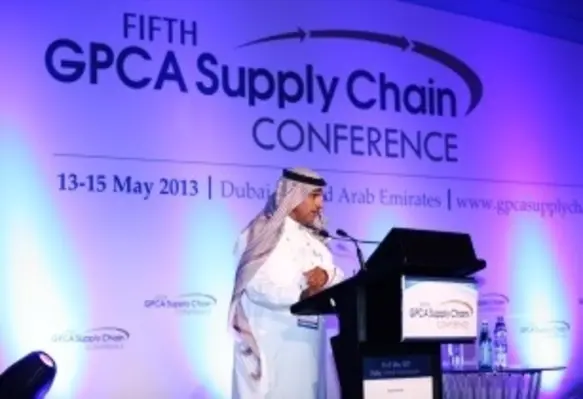As the Middle East is tipped to dominate the global petrochemical industry by 2020, the region’s companies must be flexible, sustainable and prepare to enter new, dynamic markets, said industry experts at the fifth annual Gulf Petrochemical and Chemical Association (GPCA) supply chain conference that concluded recently in Dubai
Organised by GPCA, the event was inaugurated by Saleh Al-Shabnan, vice chairman of the GPCA supply chain committee.
Al-Shabnam said, “Supply chain management in the Gulf is evolving and now is the time to look at important opportunities and close any gaps. One such issue is the sustainability of the supply chain in the Gulf. The perception is that the region is blessed with energy resources and therefore is not cautious about this. The supply chain industry here is as cautious as other regions, if not more so.”
To address the issue, SABIC will roll out five initiatives that will improve fuel efficiency, reduce carbon dioxide emissions and energy consumption.
These five initiatives are reduction of transportation time between plants and consumers; replacement of 200,000 trucks with 2,700 trains to run on Saudi Arabia’s railway network; implementing a fuel savings programme which will also reduce carbon dioxide; usage of larger and more sophisticated ships to transport products to distant markets, such as the US and Asia; and to use pipelines more for the transport of liquid products.
By implementing these initiatives, SABIC aims to reduce its energy consumption by 700,000 barrels of oil equivalent by 2016.
Puneet Madan, head of supply chain management (Polymers), Reliance Industries, India, said that the Middle East will have 386 production plants by 2015, producing 487mn cubic metres of finished petrochemical products in that time.
According to Michael McCool, general manager of AT Kearney in Hong Kong, the region comprises part of the new hub for the global chemicals industry - China, India, Middle East and Africa (CHIMEA) region.
“Over 25 years, three of the top 10 chemical firms will be in that region. We need to be eastwards looking, not westward looking, and looking to produce in China and Asia because of this shift. By 2020, the Middle East will become the central hub for the global petrochemical supply,” McCool added.
To ensure the Middle East stays ahead of its competitors, the GCC petrochemical industry will need to develop in a more sustainable way and be more flexible to better respond to the changing market dynamics, he continued.
McCool noted that Africa should be seen as a natural backyard for the petrochemicals industry in the Middle East and a location in which the Middle East should succeed better than its competitors.










